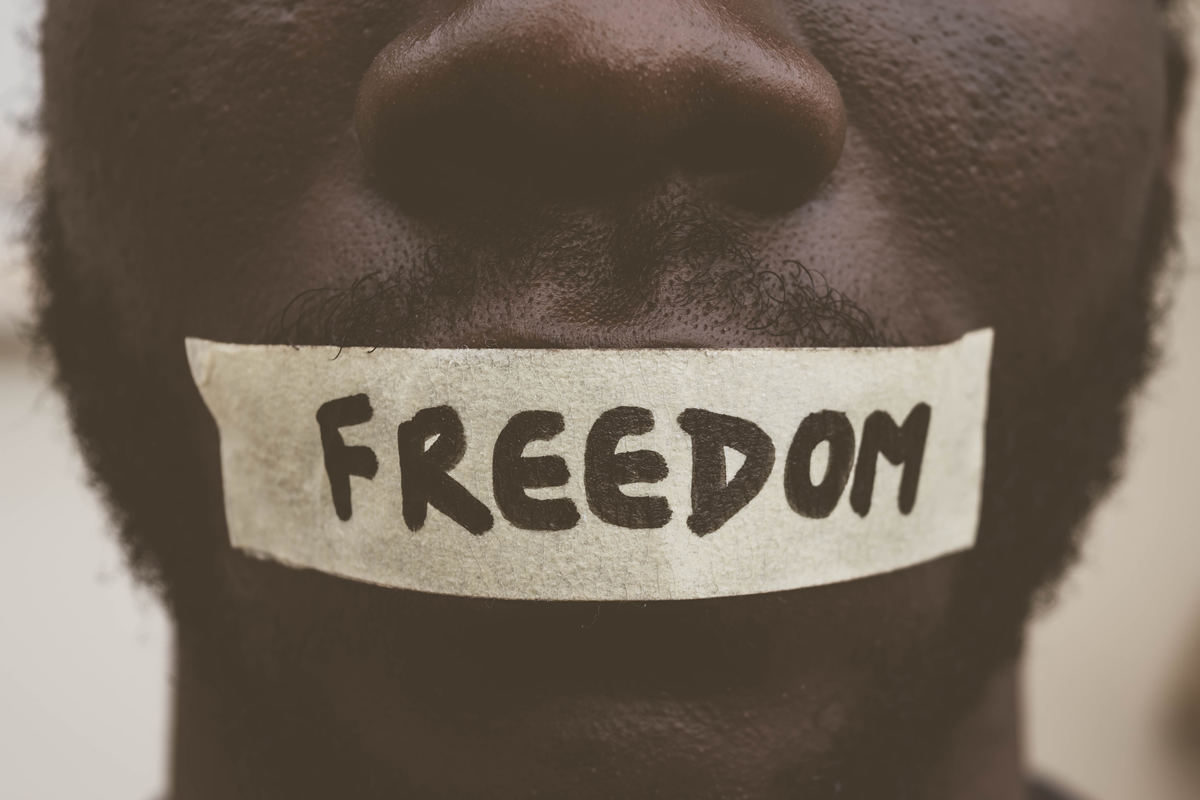The African Commission on Human and Peoples’ Rights has published the revised Declaration of Principles of Freedom of Expression and Access to Information in Africa (the Declaration). The Commission adopted the Declaration during its 65th Ordinary Session which was held from 21 October to 10 November 2019 in Banjul, The Gambia. The revised Declaration replaces the 2002 Declaration of Principles of Freedom of Expression in Africa. The initiative to revise the Declaration was undertaken by the Special Rapporteur on Freedom of Expression and Access to Information (the Special Rapporteur). The adoption of the Declaration is a landmark development that elaborates article 9 of the African Charter on Human and Peoples’ Rights and will contribute to an enhanced normative standard for freedom of expression, access to information and digital rights in Africa, in line with international human rights and standards. The Declaration was scheduled to be launched during the African Commission’s 66th Ordinary Session which has been deferred due to the COVID-19 crisis.
The revision of the Declaration was against the backdrop of developments that have taken place in the context of freedom of expression, access to information and digital rights that rendered the 2002 Declaration rather outmoded. Notable developments include the adoption of the Model Law on Access to Information for Africa (2013), the Guidelines on Access to Information and Elections in Africa (2017) and the jurisprudence of judicial and quasi-judicial organs of the African Union on freedom of expression and access to information issues. Also, developments in information and communication technologies (ICTs) have significantly transformed the rights to freedom of expression and access to information. Based on these, the African Commission adopted resolutions 222, 350 and 362 mandating the Special Rapporteur to revise the Declaration capturing the aforementioned developments while also including access to information and digital rights-related issues as they pertain to article 9 of the African Charter.
The revised Declaration captures the general principles including the significance of the rights to freedom of expression and access to information, non-interference with freedom of opinion, non-discrimination, protection of the rights to freedom of expression and access to information online, protection of human rights defenders and others, evolving capacities of children.
The principles on freedom of expression relate to media diversity and pluralism, protection and safety of journalists and other media practitioners, media independence, governance of the public service media, the private media, community media, self-regulation and co-regulation, regulatory bodies for broadcast, telecommunications and the internet.
On access to information, the revised Declaration includes principles on proactive and maximum disclosure of information, information management, access to information procedures and the applicable exemptions, oversight mechanism, whistle-blower protection and the primacy of access to information laws. The part on freedom of expression and access to information on the internet captures aspects such as access to the internet, internet intermediaries and access providers, privacy and the protection of personal information and privacy and communication surveillance.
On limiting the right of access to information and freedom of expression, the Declaration provides that “states may only limit the exercise of the rights to freedom of expression and access to information if the limitation is prescribed by law; serves a legitimate aim, and is a necessary and proportionate means to achieve the stated aim in a democratic society.”
Through the revised Declaration, the African Commission has reiterated the fundamental importance of freedom of expression and access to information as individual human rights, cornerstones of democracy and enabler of the enjoyment of other human rights. Freedom of expression and access to information are cross-cutting rights fundamental human rights guaranteed by Article 9 of the African Charter. They are also acknowledged in other African Union instruments such as the African Charter on the Rights and Welfare of the Child, the Protocol to the African Charter on Human and Peoples’ Rights on the Rights of Persons with Disabilities in Africa, the African Union Convention on Preventing and Combating Corruption, the African Charter on Statistics, the African Youth Charter, the African Charter on Democracy, Elections and Governance, the African Charter on Values and Principles of Public Service and Administration, and the Protocol to the African Charter on Human and Peoples’ Rights on the Rights of Women in Africa.
The Declaration and COVID-19
The Declaration is being released at a time when the world is confronted with a global health crisis, namely COVID-19. In this health calamity, it is important to reaffirm that freedom of expression, access to information and the right to privacy are essential elements of the right to health. As governments respond to the deadly pandemic that has now spread to the African continent, the aforementioned rights are under threat. The Declaration provides guidance to state parties to the African Charter and other stakeholders to meaningfully uphold these rights as they play an instrumental role in ensuring that timely, adequate and credible information permeates throughout the society. Limitations to these rights should be proportionate, within the law, serve a legitimate aim and necessary in a democratic society. The Special Rapporteur encourages the use of the Declaration in ensuring that responses to the COVID-19 pandemic do not interfere with the rights enshrined in Article 9 of the African Charter.
The media is an essential service and journalists and other media practitioners disseminate COVID-19 information. Some of the measures that have been adopted by governments to curb the spread of the virus have a chilling effect on freedom of expression and infringe on the rights of journalists and other media practitioners. The criminalisation of fake news publications is a case in point. Criminalising speech stifles dissent and compromise the enjoyment of freedom of expression. Principle 22 of the Declaration calls on states to repeal laws that criminalise sedition, insult and publication of false news. For the vital role that journalists play in COVID-19 crisis, their safety, physical and mental wellbeing should be guaranteed. Principle 20 of the Declaration calls for states to guarantee the safety of journalists and other media practitioners through the adoption of measures that will protect journalists and media practitioners from attacks including murder, extra-judicial killing, torture and other forms of ill-treatment, arbitrary arrest and detention, enforced disappearance, kidnapping, intimidation, threats and unlawful surveillance undertaken by state and non-state actors.
Governments should ensure that the public consistently receives credible information on COVID-19 that is in line with World Health Organisation guidelines to avoid the spread of misleading information. The Declaration, (Principle 26-36), outlines measures that states should take to give effect to the right of access to information, which is also crucial in the context of health. The Special Rapporteur appealed to states to “guarantee respect and protect the right to freedom of expression and access to information through ensuring access to the internet and social media services especially during the COVID-19 pandemic”. Restrictions should only be to the extent envisaged under international law.
As governments adopt and modify COVID-19 responses, privacy and data protection measures should be adopted to ensure adequate protection of the individuals that have been confirmed COVI-19 positive. There should be adequate human rights-based safeguards in the collection, processing and sharing of personal health data. Principles 40 and 41 of the Declaration provides such guidance on the protection of personal information in line with international human rights and standards. Inappropriate use or mishandling of this data could increase the vulnerability of those that are affected and infected. The Declaration is beneficial in this aspect as almost half of the continent does not have legislation to give effect to the right to privacy and data protection. As a case in point, in South Africa, the Information Regulator has issued Guidelines on the Protection of Personal Information in the COVID-19 context, particularly to provide guidance to public and private bodies in the handling of personal information as the right to privacy will be evidently infringed in trying to curb the spread of the virus through means such as contact tracing.
The African Commission calls on state parties to the African Charter to:
- adopt legislative, administrative, judicial and other measures to give effect to the revised Declaration and facilitate its dissemination;
- to review or adopt legislation on access to information in line with the Model Law on Access to Information for Africa; to use of the Guidelines on Access to Information and Elections in Africa in the context of elections and
- report on the implementation of the provisions of the Declaration in Periodic Reports submitted to the African Commission.
It is hoped that this Declaration, will guide States and non-state actors in the realisation of freedom of expression and access to information, both offline and online. The process leading to the adoption of the Declaration included technical drafting meetings that were held in Nouakchott, Mombasa and Pretoria; public consultations in Maputo, Windhoek and Banjul. The technical team comprised freedom of expression, access to information and digital rights advocates from across the continent. Consultation meetings were attended by representatives from governments, the media, academia, NGOs and other stakeholders. The Centre for Human Rights’ Expression, Information and Digital Rights Unit was represented by Ms Hlengiwe Dube. The Unit provided logistical and technical support to the process as part of its ongoing support to the mandate of the Special Rapporteur that includes the conceptualisation and development of normative instruments on freedom of expression, access to information and digital rights, in line with international human rights standards.
For more information, please contact:

Expression, Information and Digital Rights Unit
Tel: +27 (0) 12 420 4199
Fax: +27 (0) 86 580 5743
hlengiwe.dube@up.ac.za

Researcher: Expression, Information and Digital Rights Unit
Tel: +27 (0) 12 420 4397
Fax: +27 (0) 86 580 5743
oluwatomiwa.ilori@up.ac.za


